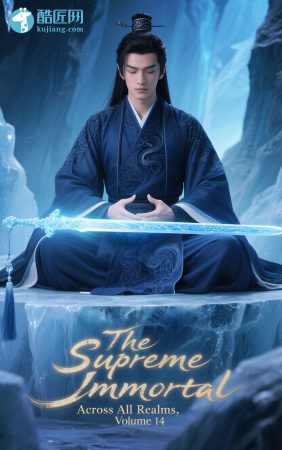Chapter 23: Everything for Production
Our Discord Server: https://discord.gg/PazjBDkTmW
You can buy coins here to unlock advanced chapters: https://gravitytales.com/coins-purchase-page/
Chen Wenlong and the craftsmen all turned their eyes to Xiao Ming.
After the briquette stove and the lathe, Xiao Ming once again introduced a shocking new technique.
For the craftsmen, who had spent their lives mastering their inherited skills, unaltered for generations, Xiao Ming’s innovation completely upended their understanding.
“That’s right. The crucible steel method is well-established, but the steel it produces requires repeated forging to enhance its strength, which is extremely time-consuming,” Xiao Ming explained. “The blast furnace ironmaking technique I am teaching you will involve building two interconnected furnaces. The first will produce pig iron, which will then be refined into wrought iron in the second furnace. This way, iron production can be scaled up efficiently.”
Chen Wenlong instructed the craftsmen to stop their work and sit down, listening intently. By now, such knowledge-sharing sessions had become routine in the Engineering Department, and both Chen Wenlong and the craftsmen were used to it.
Xiao Ming picked up the stone pencil Chen Wenlong had prepared— a chalk-like material that left white markings—and began sketching the blast furnace structure on a black stone slate as he explained.
The craftsmen listened with utmost seriousness. Every time Xiao Ming imparted new skills, they felt a sense of enlightenment, quickly grasping even the most unfamiliar techniques.
The boring machines, drilling machines, milling machines, and grinding machines currently produced in the Engineering Department had all been built following Xiao Ming’s blueprints and the craftsmen’s visual memory. After initial trials, these lathes were proving to be successful.
For example, the drilling machine—a lathe designed for boring holes in components—had been used successfully to perforate iron sheets for gas stoves.
Another example was the boring machine, which refined the holes drilled by the drilling machine. As Xiao Ming explained, these two machines together could turn a solid steel block into a hollow steel tube.
Although the craftsmen didn’t fully understand what Xiao Ming meant by “steel tubes,” they instinctively felt that it was something remarkable.
An hour passed quickly, and Xiao Ming felt parched as he finished explaining blast furnace ironmaking.
“Your Highness, how should we control the heat when refining coke?” A young craftsman suddenly asked.
This young man was always the most focused during Xiao Ming’s lectures, showing an extraordinary enthusiasm for these technical skills.
However, perhaps out of deference to Xiao Ming, he had never spoken up before. This time, as Xiao Ming merely touched on the topic of coke refining, the young craftsman couldn’t help but ask.
“What’s your name?” Xiao Ming was intrigued by this craftsman, who appeared to be around his own age. In his view, only those with a thirst for knowledge could truly be passionate about their craft.
This young man clearly had a deep enthusiasm for The Engineering Department.
Chen Wenlong, looking somewhat awkward, quickly explained, “Your Highness, this is my son, Chen Qi. He lacks proper manners. Please don’t hold it against him.”
Then, turning to his son, he scolded, “Step back! This is not your place to speak!”
Chen Qi frowned and protested, “Father, I just wanted to clarify the precise heat control for refining coke. If we handle it carelessly and burn it all up, wouldn’t that cause huge losses for the Engineering Department?”
Just as Chen Wenlong was about to reprimand him further, Xiao Ming suddenly intervened. He looked at Chen Qi with satisfaction and said, “Chen Qi is right. Precision matters in craftsmanship. I’ve heard that he was also the one leading the craftsmen in building the lathes?”
“That is true, Your Highness,” Chen Wenlong admitted with a sigh. His son had never enjoyed reading but was deeply fascinated by mechanical contraptions.
Xiao Ming gestured for Chen Qi to come forward. “Not bad, you have a sharp mind. Would you be interested in becoming the chief craftsman of the Engineering Department?”
Chen Qi’s face lit up with excitement but hesitated, glancing at his father for approval.
Before Chen Wenlong could voice concerns about his son’s youth, Xiao Ming decisively said, “It’s settled then. Your monthly salary will be one tael of silver. From now on, you’ll be responsible for overseeing the work I assign.”
“Yes, Your Highness!” Chen Qi responded enthusiastically. He knew that the chief craftsman position was just one step away from becoming an official in the military supply bureau.
His father had always disapproved of his passion for mechanics, but now, with Xiao Ming’s recognition, he finally felt vindicated.
However, he still hadn’t received an answer to his question. He quickly asked, “Your Highness, you still haven’t told us the exact temperature needed for refining coke.”
“It should be about 30% lower than the temperature for smelting iron,” Xiao Ming replied. Iron smelting required around 1,400 degrees Celsius, whereas coke refinement needed approximately 1,000 degrees. “Be bold in your experiments. Even if some is wasted, it’s not a big deal.”
“Understood, Your Highness!” Chen Qi answered confidently.
With the blast furnace ironmaking process assigned, construction of the furnaces would take some time. Xiao Ming hoped that by then, Qian Dafu would bring back good news about graphite.
If that happened, he could establish a complete production line integrating blast furnace ironmaking and crucible steel refining.
Next, Xiao Ming inspected the lathes. These machines were equivalent to 17th-century manual lathes from his world—entirely hand-operated.
Moreover, the drill bits for the lathes were crafted from steel tools forged by the craftsmen. While not sophisticated, they were sufficient for processing coarse components.
Looking at the array of lathes before him, Xiao Ming felt a sense of accomplishment. With these machines, he could begin producing small mechanical parts, which could then be assembled into one of the oldest forms of machinery—a clock.
In his view, in his previous world, industrialization had its roots in clockmaking. It was from this era that precision parts began to play a significant role in history.
As for firearms and cannons, Xiao Ming had considered them, but he understood that they were unrealistic to manufacture within a few years.
As the saying goes, “A single cannon shot costs ten thousand taels of gold.” His territory was impoverished, and the lengthy process of crafting a single firearm with manual lathes was an impractical burden. Before the advent of steam engines, producing firearms on a large scale was almost laughable.
Therefore, Xiao Ming’s current strategy was to focus everything on production. Only when his territory became prosperous and had a basic industrial foundation could he develop such technologies in tandem with economic growth.
After all, in Xiao Ming’s eyes, warfare was a matter of wealth and resources. Without adequate supplies, even the best weapons were useless. Prioritizing military development over economic stability was simply unrealistic.
For now, his priority was building up his territory. Of course, strengthening the military was also necessary—both to defend against the nomads from the northern grasslands and to deal with banditry during the harsh winter months.
Based on past experiences, winter—when food was scarce—was always the season when bandits ran rampant.












